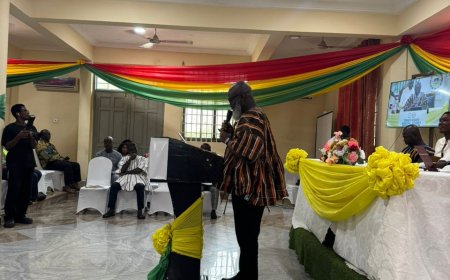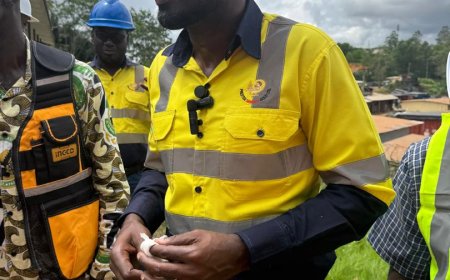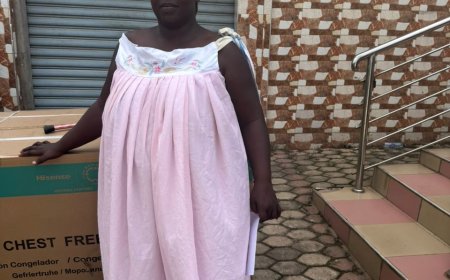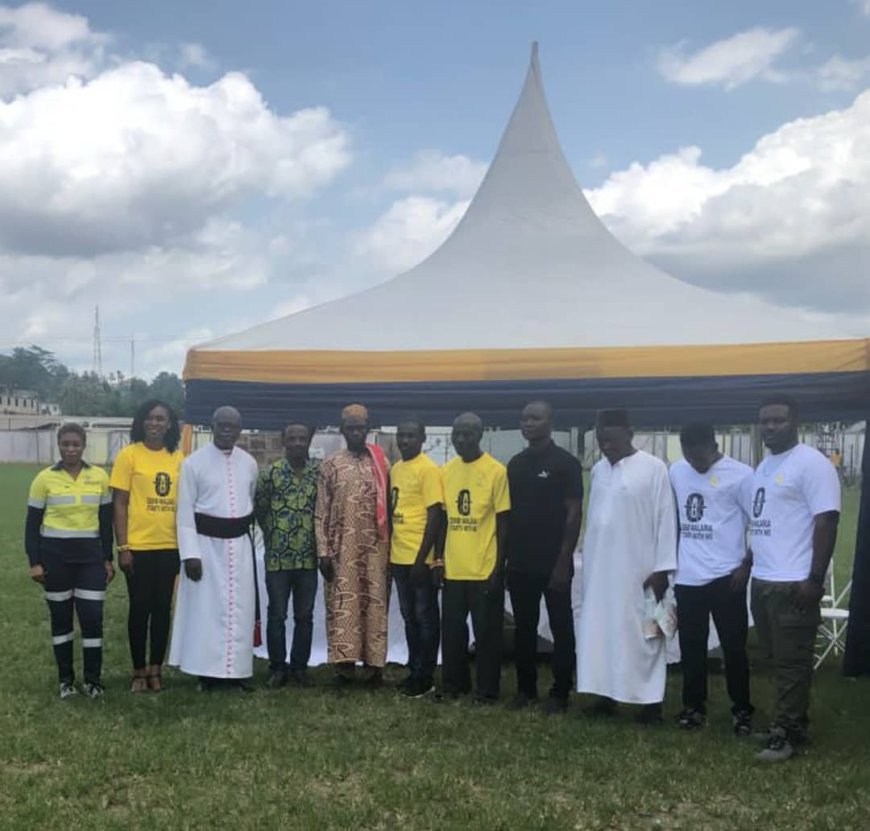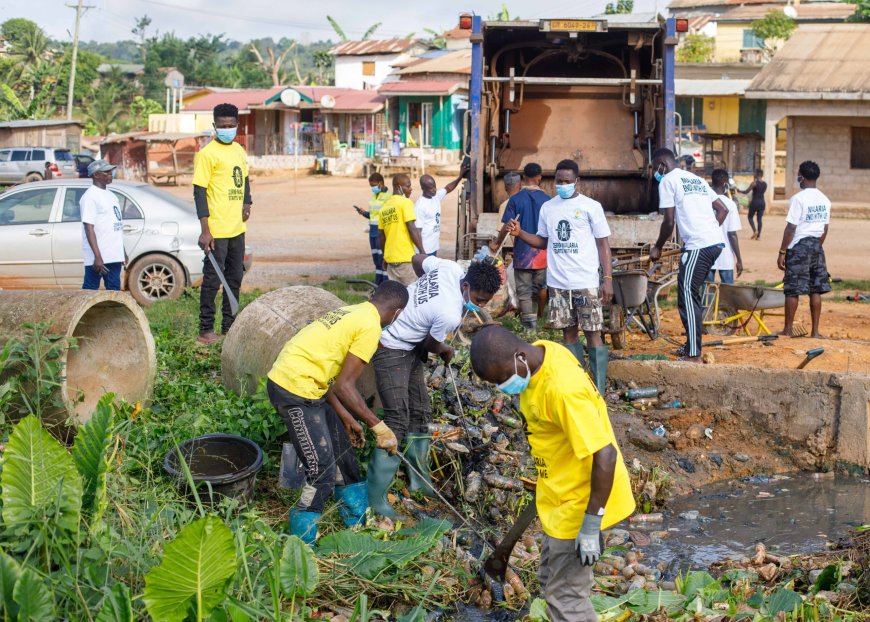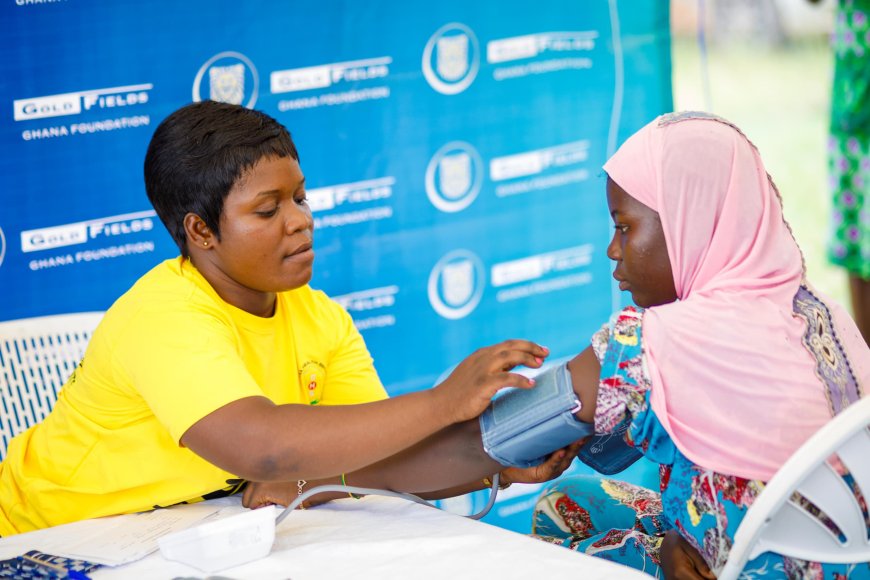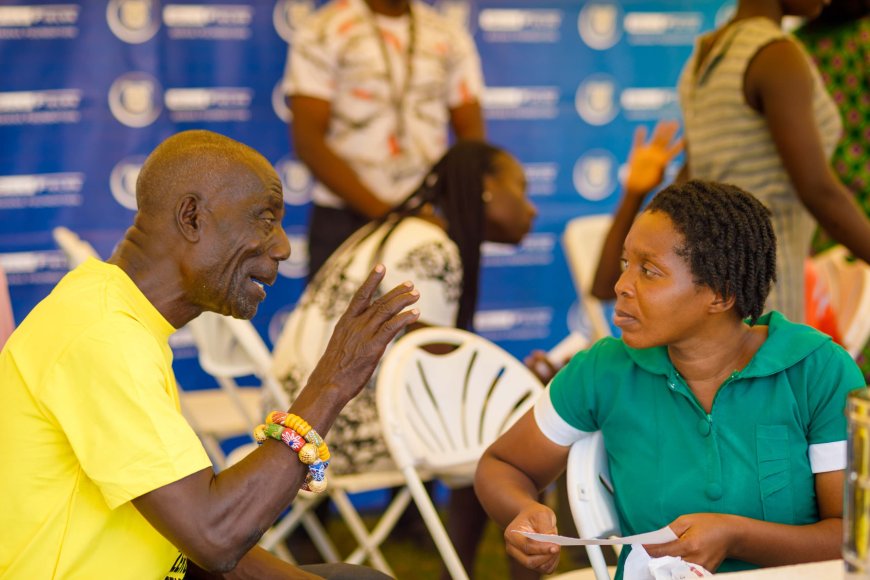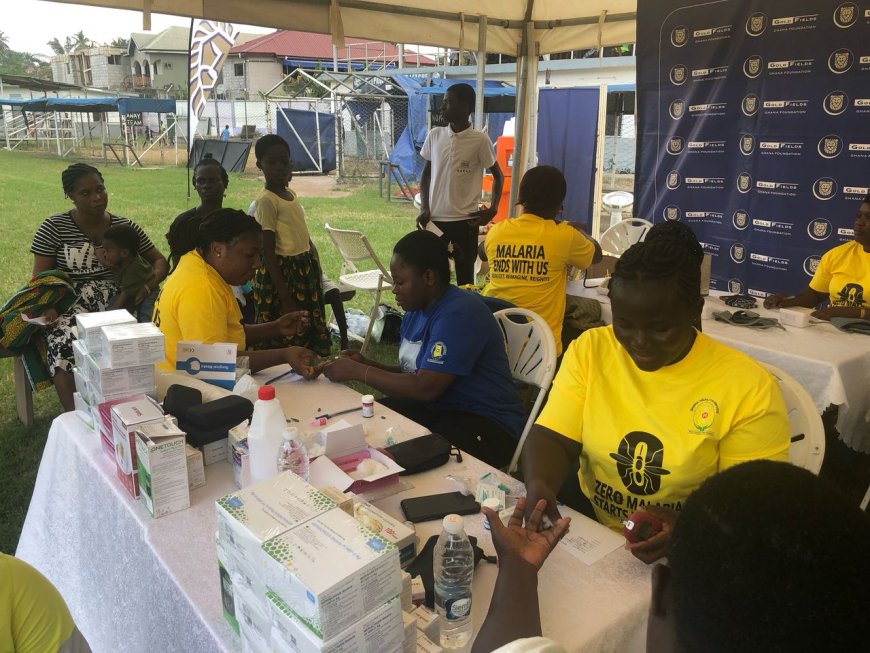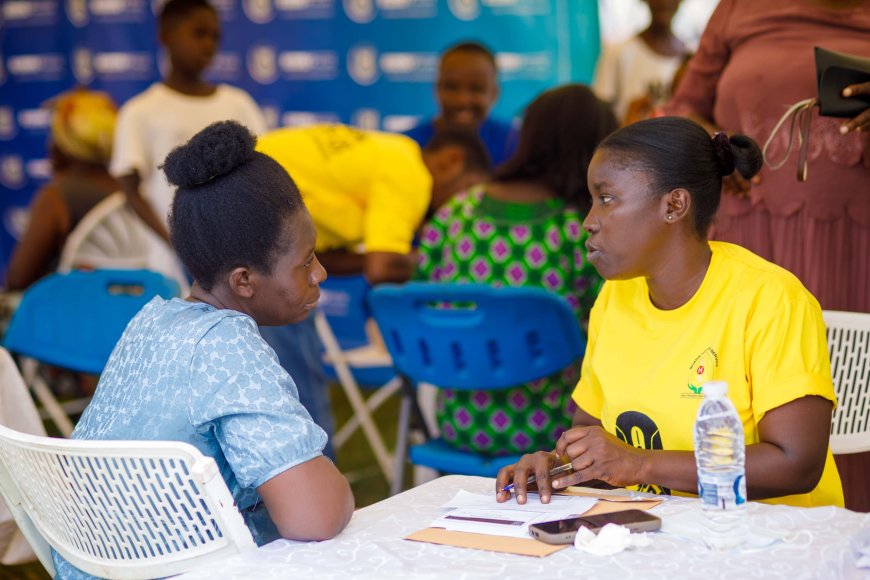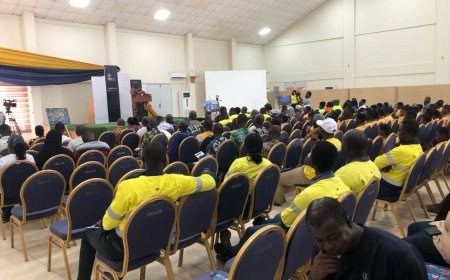The event, which featured a cleanup exercise, free health screening, and educational activities, was held under this year’s national theme: “Malaria Ends With Us: Reinvest, Reimagine, Reignite.”
Municipal Health Director Calls for Renewed Commitment
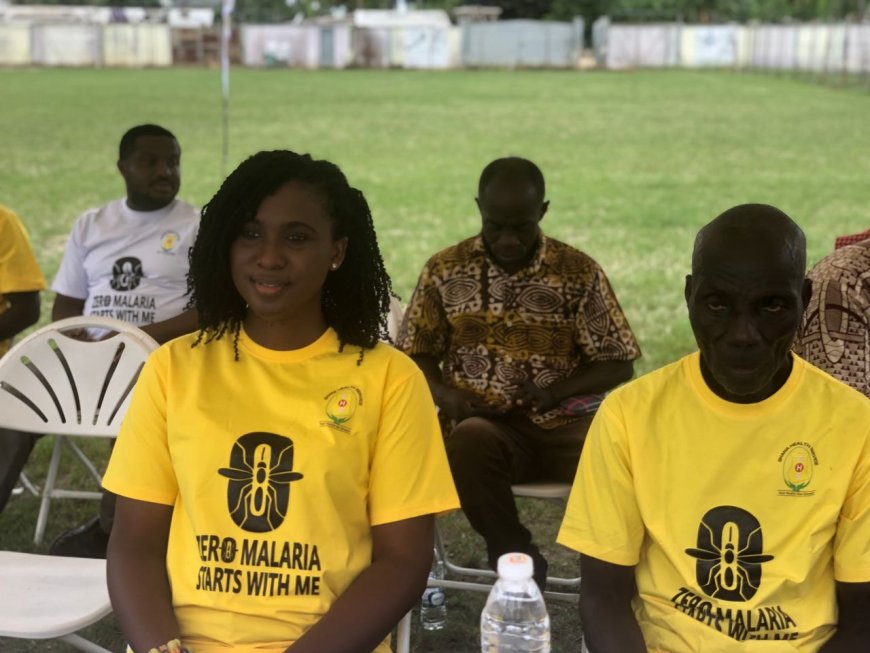 Speaking at the durbar, the Municipal Director of Health, Madam Wilhemina Duah, highlighted the continued burden of malaria in Ghana and the urgency to accelerate efforts toward its elimination.
Speaking at the durbar, the Municipal Director of Health, Madam Wilhemina Duah, highlighted the continued burden of malaria in Ghana and the urgency to accelerate efforts toward its elimination.
Despite years of interventions, malaria remains endemic and perennial in Ghana, posing a particularly high risk to children under five and pregnant women. It is unacceptable that this preventable and treatable disease still kills a child every minute globally,” Madam Duah emphasized.
She noted that while there have been notable gains, malaria prevalence in Tarkwa Nsuaem is rising among the general population, from 19.2% in 2022 to 27.9% in 2024. She cited Dompim, Simpa, Benso Sub-Municipal, and Nsuaem as hotspot areas within the municipality, while Tarkwa town showed relatively lower prevalence due to its urban environment and improved sanitation.
Madam Duah urged community members to maintain environmental hygiene by draining stagnant water and eliminating mosquito breeding sites such as used cans, tyres, and open containers. She also emphasized the importance of proper use of insecticide-treated nets (ITNs), adherence to treatment protocols, and antenatal care attendance to protect vulnerable groups.
Staggering Global and Local Statistics
According to the 2024 WHO World Malaria Report, global malaria cases rose to 263 million in 2023, with 597,000 deaths, most of them in sub-Saharan Africa. Ghana continues to bear a significant burden. Locally, Tarkwa Nsuaem saw 65,167 malaria cases out of 510,439 OPD attendances in 2024, representing 12.7% of all OPD visits. Although malaria among pregnant women dropped to 0.1% prevalence, the positivity rate among those tested increased sharply to 38.5%, raising concerns over early detection and prevention effectiveness.
Challenges Hindering Progress
Despite interventions, several challenges persist. These include:
• Misuse or underuse of ITNS,
• Non-adherence to malaria treatment protocols,
• Inadequate coverage of intermittent preventive treatment in pregnancy (IPTp),
• Limited funding for critical interventions like indoor residual spraying (IRS) and the RTS, S malaria vaccine,
• Increased mosquito breeding due to illegal mining activities that create stagnant water in open pits.
“Mining activities, particularly illegal ones, have significantly contributed to increased mosquito breeding sites. This threatens the progress we’ve made,” Madam Duah warned.
Regional Update: Tarkwa Among Top Malaria-Prone Districts
The Western Region’s Malaria Focal Person, Clement Amankwaah, also addressed the gathering, revealing a worrying 12.4% increase in malaria cases across the region, from 470,062 cases in 2023 to 528,937 in 2024.
“Tarkwa Nsuaem ranks 6th among districts with the highest number of malaria cases in the region. The disease continues to top OPD morbidity charts, and this trend must change if we aim to eliminate malaria,” he stated.
Districts with the highest burden include Wassa Amenfi Central, Wassa East, Ellembelle, and Shama, with Effia Kwesimintsim, Sekondi-Takoradi, and Ahanta West recording the lowest.
Gold Fields Ghana Foundation: Investing in Health
Sandra Deladem Woanyah, Project Manager for Gold Fields Ghana Foundation, reiterated the foundation’s commitment to health as a core focus area. “Over the past 20 years, we have invested heavily in health infrastructure, outreach, and public education,” she said.
To mark World Malaria Day, the foundation organized a community cleanup in Akoon and Borborbo, followed by free health screenings. “We believe that healthy communities are empowered communities. Malaria is preventable, and with joint effort, we can end it,” she added.
Ongoing Interventions in Tarkwa Nsuaem
The Municipal Health Directorate is currently implementing a range of strategies aimed at eliminating malaria:
1. IPTp for pregnant women using SP from 16 weeks of gestation,
2. Distribution of ITNS through schools, health facilities, and HIV clinics,
3. Larval Source Management to destroy mosquito breeding sites,
4. Diagnosis and effective case management, and
5. Surveillance in epidemiology and entomology.
Conclusion: Elimination Is Possible
The call to action is clear. “Eliminating malaria in Ghana is achievable – but only if we all play our part. Reinvesting in health, reimagining our approach in the face of climate change, and reigniting our passion to end malaria are non-negotiables,” said Madam Duah in her closing remarks.
As Ghana joins the rest of the world in observing World Malaria Day 2025, the hope remains that sustained community action, political commitment, and innovative approaches will ultimately defeat this age-old disease. After all, as the theme boldly proclaims, Malaria Ends With Us.
Source: Nana Esi Brew Monney
DISCLAIMER: The Views, Comments, Opinions, Contributions and Statements made by Readers and Contributors on this platform do not necessarily represent the views or policy of Space FM.
 Speaking at the durbar, the Municipal Director of Health, Madam Wilhemina Duah, highlighted the continued burden of malaria in Ghana and the urgency to accelerate efforts toward its elimination.
Speaking at the durbar, the Municipal Director of Health, Madam Wilhemina Duah, highlighted the continued burden of malaria in Ghana and the urgency to accelerate efforts toward its elimination.
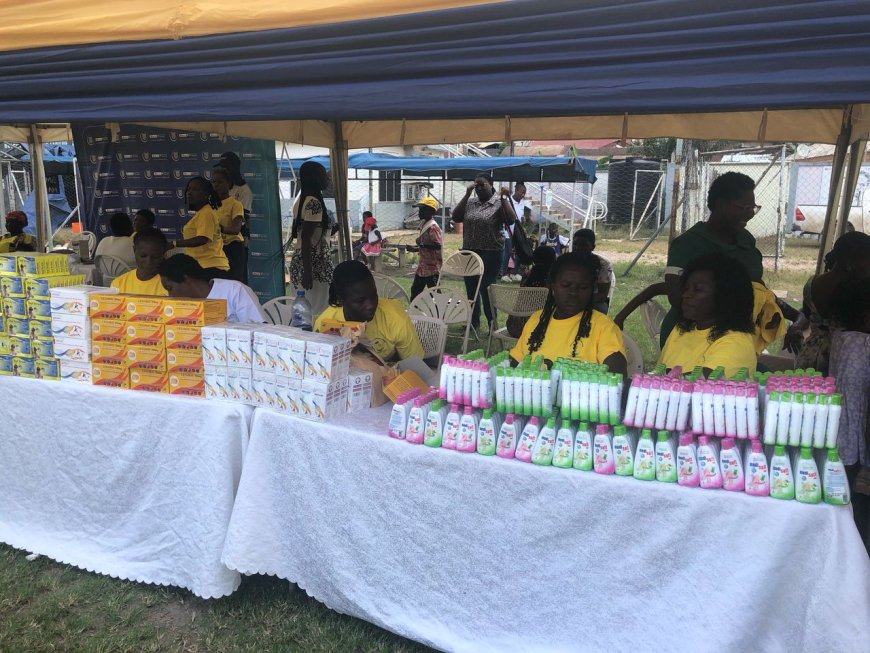
 Like
0
Like
0
 Dislike
0
Dislike
0
 Love
0
Love
0
 Funny
0
Funny
0
 Angry
0
Angry
0
 Sad
0
Sad
0
 Wow
0
Wow
0

